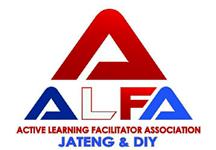STEM DALAM PEMBELAJARAN IPA DI ERA REVOLUSI INDUSTRI 4. 0
Abstract
The era of the industrial revolution 4.0 has an impact on science education to be able to prepare individuals who have competent competence in facing various challenges in the future, by applying technological advances in learning science. The STEM approach provides alternatives in science learning in an integrated manner with technology, engineering and mathematics. This study provides an overview of the role of STEM in learning science in the era of the industrial revolution 4.0. Based on the results of the research that was studied showed that STEM can direct the study of science closely related to technology, so that science has an important role in preparing superior human resources, both soft kill and hard skill. Science has a role in encouraging students to be able to apply their understanding of science in producing a work of technology that can be meaningful in everyday life. Through science learning, students can practice in developing their ability to think systematically, logically, and critically, so that it can be used to make discoveries and engineering by applying scientific steps.
Keywords
Full Text:
PDFReferences
Agrawal, A., Schaefer, S., & Funke, T. (2018). Incorporating Industry 4.0 in Corporate Strategy, (October), 161–176. https://doi.org/10.4018/978-1-5225-3468-6.ch009.
Bryan, L. A., Moore, J. T., Johnson, C. C., & Roehrig, G. H. (2016). Integrated STEM Education. In Johnson, C. C, Peters-Burton, E. E., & Moore, T. J. (Ed.), STEM Road Map: A Framework for Integrated STEM Education (pp.23-37). New York & London: Routledge, Taylor & Francis Group.
E. H. M. Shahali et al. (2016). STEM learning through engineering design: Impact on middle secondary student’s interest toward STEM. EURASIA Journal of Mathematics Science and Technology Education, 13(5), 1189-1211.
Erdogan, I & Ciftci, A. (2017). Investigating the Views of Pre-Service Science Teachers on STEM Education Practices. International Journal of Environmental and Science Education, 12(5),1055-1065.
Herak, Rikardus & G.H. Lamanepa. (2019). Meningkatkan Kreatifitas Siswa melalui STEM dalam Pembelajaran IPA. Jurnal EduMatSains, 4 (1) Juli 2019, 89-98
JONES, F. S. (1984). The New Economic History and the Industrial Revolution. South African Journal of Economics, 52(2), 77–88. https://doi.org/10.1111/j.1813-6982.1984.tb00825.x.
Kemristekdikti. 2018a. Pengembangan Iptek dan Pendidikan Tinggi di Era Revolusi Industri 4.0. Retrieved from https://www.ristekdiktiristekdikti.go.id/pengembangan-iptek-dan-pendidikan-tinggi-di-era-revolusi-industri-4-0/.
Lase, Delipiter. (2019). Pendidikan di Era Revolusi Inustri 4.0. Jurnal STT Banua Niha Keriso Protestan Sudermann Nias.
Mintasih, D. (2018). Mengembangkan literasi informasi melalui belajar berbasis kehidupan terintegrasi PBL untuk menyiapkan calon pendidik dalam menghadapi era revolusi industri 4.0. Elementary islamic teacher journal, 6(2), 271-290.
Mu’mainah, Iim Halimatul & Ipin Aripin. (2019). Implementasi Pembelajaran IPA Berbasis STEM Berbantuan ICT untuk Meningkatkan Keterampilan Abad 21. Jurnal Sainsmat, September 2019, Halaman 28-35.
Sheppard, S. D, Macantangay, K., Colby, A. & Sullivan, W. M. (2009). Educating engineers: Designing for the future of the field. San Francisco, CA: Jossey-Bass.
Subekti, H., dkk. (2018). Mengembangkan Literasi Informasi Melalui Belajar Berbasis Kehidupan Terintegrasi STEM untuk Menyiapkan Calon Guru IPA dalam Menghadapi Era Revolusi Industri 4.0: revieuw literatur. Education and Human Development Journal, 3(1), 81-90.
Sunarno, Widha. (2018). Pembelajaran IPA di Era Revolusi Industri 4.0. Prosiding Seminar Nasional Pendidikan Fisika IV 2018 “Peran Pendidik dan Ilmuwan IPA dalam Menyongsong Revolusi Industri 4.0” Program Studi Pendidikan Fisika FKIP Universitas PGRI Madiun.
Suwarna, I.R., P. Astuti, & N.E. Endah. (2015). Balloon Powered Car sebagai Media Pembelajaran IPA Berbasis STEM (Science, Technology, Engineering, and Mathematic). Prosiding Simposium Nasional Inovasi dan Pembelajaran Sains.
Syukri, M., L. Halim, T.S.M. Meerah. (2013). Pendidikan STEM dalam Entrepreneurial Science Thinking “ESciT’. Satu Perkongsian dari UKM untuk Aceh. Aceh Development International Conference 2013.
Ungurean, I., Gaitan, N. C., & Gaitan, V. G. (2014). An IoT architecture for things from industrial environment. IEEE International Conference on Communications, (May). https://doi.org/10.1109/ICComm.2014.6866713.
Wiyono, Ketang & Zakiyah, Sri. (2019). Pendidikan Fisika Pada Era Industri 4.0 di Indonesia. Prosiding Seminar Nasional Pendidikan Program Studi Pendidikan Fisika FKIP ULM Banjarmasin.
Wortmann, F., & Flüchter, K. (2015). Internet of Things: Technology and Value Added. Business and Information Systems Engineering, 57(3), 221–224. https://doi.org/10.1007/s12599-015-0383-3.
Yuliati, Yuyu & Suhandi S, Dudu. (2019). Pembelajaran IPA di Era Revolusi Industri 4.0. Jurnal Cakrawala Pendas Volume 5 Nomor 2 Edisi Juli 2019.
Zhou, K., Taigang L., & Lifeng, Z. (2015). Industry 4.0: Towards future industrial opportunities and challenges. In Fuzzy Systems and Knowledge Discovery (FSKD), IEEE 12th International Conference, pp. 2147-2152.
DOI: https://doi.org/10.31002/nse.v3i1.873
Refbacks
- There are currently no refbacks.
Indonesian Journal of Natural Science Education
P-ISSN 2621-8747 | E-ISSN 2621-8755
Published By:
Program Studi Pendidikan IPA Fakultas Keguruan dan Ilmu Pendidikan Universitas Tidar
Alamat Redaksi:
Jl. Kapten Suparman No. 39, Potrobangsan, Magelang Utara, Kota Magelang, Jawa Tengah 56116
email: ijnse@untidar.ac.id
Indexed By:
Indonesian Journal of Natural Science Education is licensed under a Creative Commons Attribution 4.0 Internasional License.









